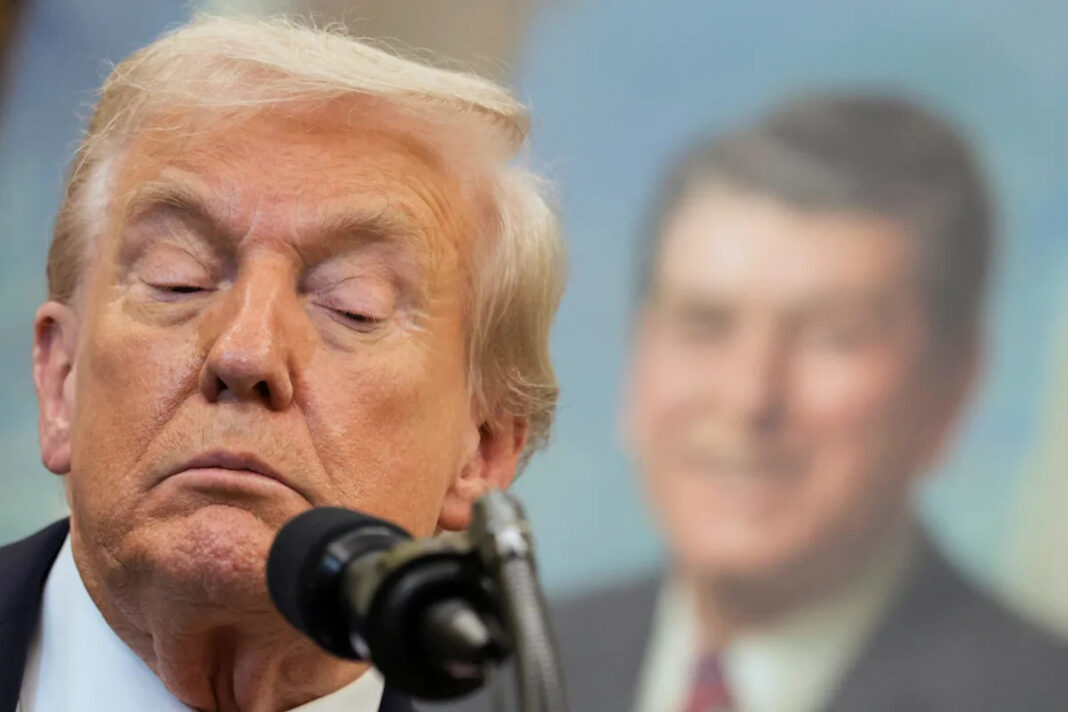Ontario’s Tariff Advertising Controversy Amidst World Series
A Cross-Border Clash
In a recent development that has stirred significant diplomatic tensions, the Ontario government has continued airing an ad critical of tariffs imposed by the United States on Canadian imports. This decision comes in light of President Donald Trump’s abrupt halt of trade negotiations with Canada, following his objections to the ad, which features remarks from the late U.S. President Ronald Reagan.
The Ad That Sparked Outrage
Ontario Premier Doug Ford has maintained his stance on the importance of the ad, asserting that the goal was to ignite a discussion about the economic impacts of tariffs on American workers and businesses. The commercial is set to reach U.S. audiences during crucial moments of viewership, specifically during Games 1 and 2 of the World Series, showcasing the Canadian team, the Toronto Blue Jays, as they compete against the Los Angeles Dodgers.
Conversations and Compromises
On October 24, Ford publicized his plan to pause the ad after the weekend to facilitate the resumption of trade talks. He cited discussions with Canadian Prime Minister Mark Carney as a basis for this decision, indicating a willingness to defuse tensions for the sake of dialogue with the U.S.
Reagan’s Legacy in Question
The content of the ad utilizes audio clips from Reagan’s 1987 radio address, where he expressed skepticism about the efficacy of tariffs. The ad is criticized for splicing five sentences out of context, a point raised by the Ronald Reagan Presidential Foundation and Institute, which claims that the ad misrepresents the former president’s views and that permission to use his speeches was not granted.
Trump’s Reaction
In a fervent response on his social media platform, Trump characterized the ad as “fake,” alleging that it misrepresented Reagan’s opinions on tariffs. He further claimed that Canada was taking unfair advantage in trade negotiations, reiterating a more protectionist stance reminiscent of his administration’s broader trade policies.
Economic Ramifications
Tariffs have become a substantial point of contention between the two countries, particularly as Trump has imposed sweeping tariffs on a range of imports, including Canadian goods. Since August, Canadian products not protected under the Canada-United States-Mexico Agreement have faced a 35% tariff, which is seen as detrimental to trade relations.
The Importance of Dialogue
Ford emphasized that the intention of airing the commercial was to engage American audiences in a critical conversation about their economy. He affirmed that the airing of the ad has succeeded in reaching relevant U.S. demographics and elevating discussions surrounding trade and tariffs.
Understanding Reagan’s Remarks
The ad’s portrayal of Reagan aligns with his critiques of tariffs, as he previously warned against their short-term appeal for protecting domestic industries and jobs. He articulated that while tariffs might provide temporary relief, they ultimately hinder long-term economic growth. This perspective sharply contradicts Trump’s depiction of Reagan as a proponent of tariffs.
Legal Context and Trade Challenges
As tensions escalate, the upcoming Supreme Court hearing on November 5 further complicates the situation. The court will evaluate the legality of Trump’s tariffs, which have been ruled by lower courts as an overreach of executive authority. Trump argues that his actions are necessary in response to unfair trade practices, emphasizing the stakes involved for U.S.-Canadian relations.
In Summary
The unfolding events surrounding the tariff ad and the ensuing diplomatic spat highlight a complex intersection of politics, commerce, and historical legacy. With the World Series as a backdrop, this controversy continues to unfold, encapsulating the nuances of cross-border relations in a time of protectionist sentiment.



